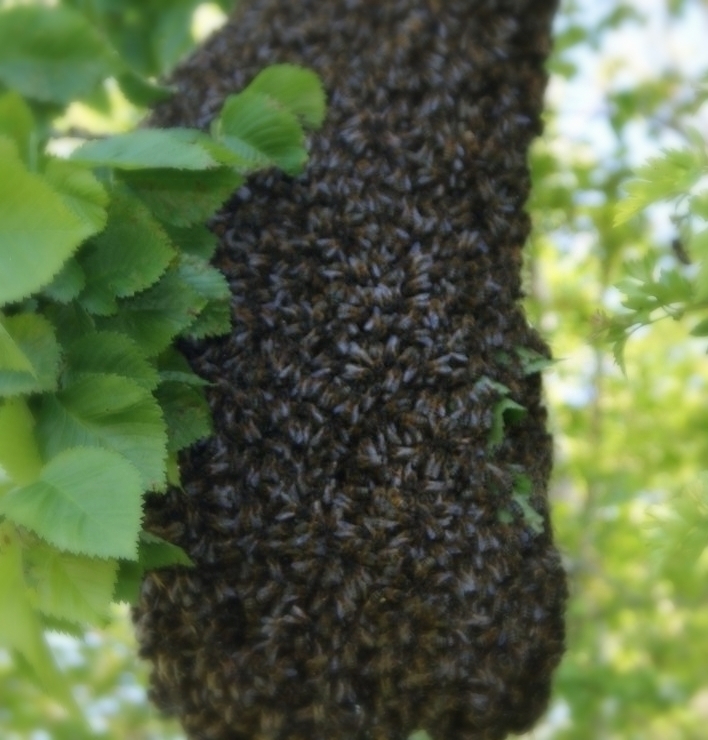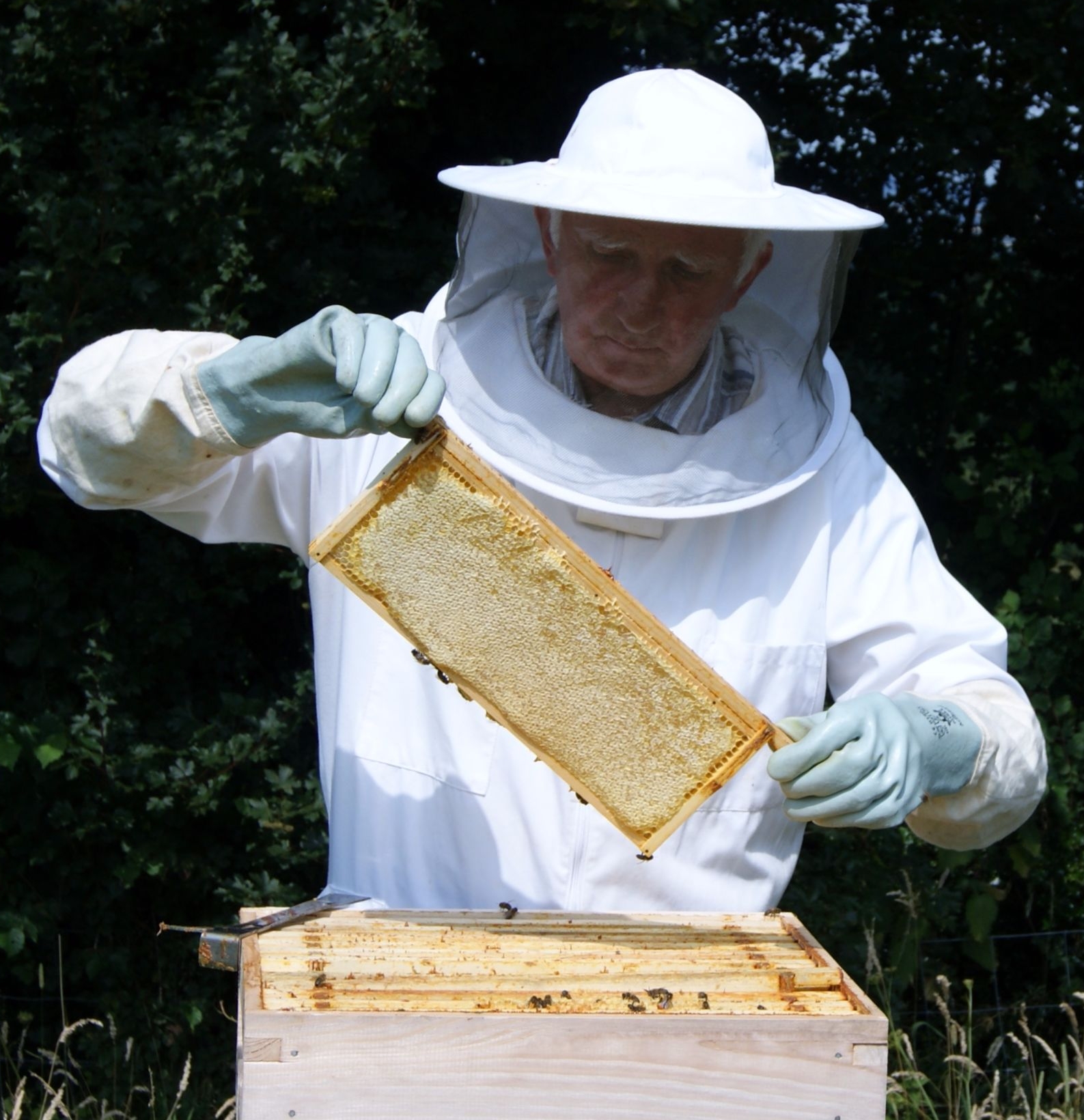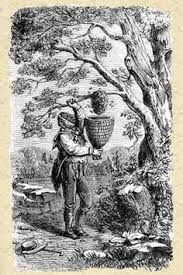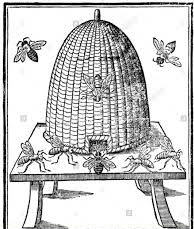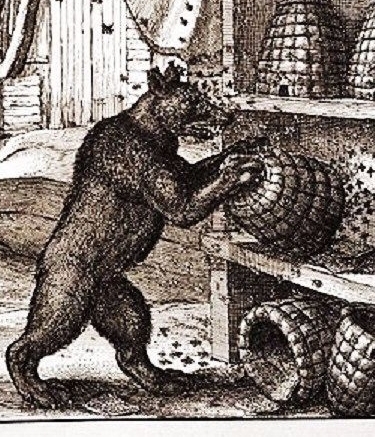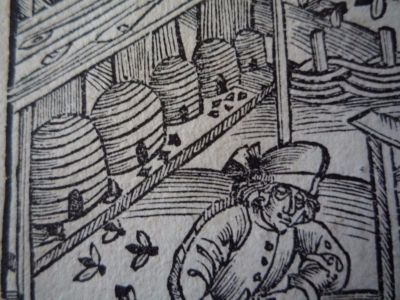Bees

"If the bee disappears from the surface of the earth, man would have no more than 4 years to live."
These very wise words were attributed to Albert Einstein and in todays world diseases amongst our bees are a very real threat. We thought it only right therefore that we should do our bit. So, a few years ago, we purchased our first colony of bees. To be honest our decision wasn't really based on Einstein's comments, more a fact that we really like honey.
We did have three hives but during the winter of 2020-21 we lost them when high winds and rainy weather knocked the hives over killing all the bees. We did, however, purchase two nucs in 2022 and these successfully got through a very rainy winter. This year (2023) they have done us proud and given us some really beautifully tasting honey.
Some may think it strange that bee keepers enjoy delving into a hive containing around 40,000 to 50,000 bees. There is obviously a reason. It's to ensure they are all fit and healthy, are not suffering from disease, mice haven't made their way into the hive or woodpeckers drilled their way in and wasps haven't raided the stores.
Few realise what a remarkable insect the bee is. Bees polinate three quarters of the world's crops and is the only insect that polinates the food we eat. They only have a life span of 122 - 152 days. Worker bees are female and only live for about 70 days. The male bees (Drones) are larger than worker bees but apart from mating with the Queen bee, don't do any work. The Queen bee lives for about 5 years and in summer lays up to 2500 eggs a day.
Whilst out foraging a bee can fly up to 4 miles at a speed of about 15mph and will only make 1/12 of a teaspoon of honey in its lifetime.
